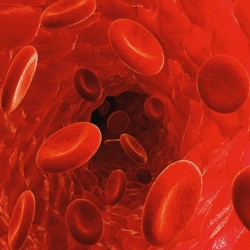
Progress being made toward developing an effective Ebola vaccine. The World Health Organization (WHO) last year reported some very promising signs during the early stages of a trial involving a vaccine called rVSV-ZEBOV, and now the final results are in, confirming the previous 100 percent protection rate from the deadly disease.
"While these compelling results come too late for those who lost their lives during West Africa’s Ebola epidemic, they show that when the next Ebola outbreak hits, we will not be defenceless," said Dr Marie-Paule Kieny, WHO’s Assistant Director-General for Health Systems and Innovation, and the study’s lead author.
While Ebola outbreaks have occurred sporadically since the 1970s, these were short and affected much less people than the most recent event, making it difficult for doctors to trial and develop vaccines. But this changed in 2013, with the outbreak touching 28,000 people and claiming 11,300 lives.
In March 2015, researchers began vaccinating individuals in a coastal region of Guinea, which was still experiencing new cases of Ebola at the time. Just as important as the drug itself was a strategy the researchers used called "ring vaccination," which works kind of like a social quarantine.
Every time a new Ebola case was recorded, the researchers traced all the people who may have come into contact with the patient within the previous three weeks. This might mean people that lived in the household, people the patient came into contact with and even contacts of contacts. This is similar to the method that was employed in the 1970s to eradicate smallpox.
In all, the trial involved almost 12,000 participants, 5,837 of which received the vaccine. Some minor side effects like headaches and fatigue were reported, but among those to receive it not a single Ebola case was reported 10 or more days after administration. By comparison, 23 new cases were reported among those who did not receive the vaccination. Furthermore, the researchers say the ring approach proved effective in indirectly protecting those who did not receive the vaccination, though determining exactly how much will require further research.
"Ebola left a devastating legacy in our country. We are proud that we have been able to contribute to developing a vaccine that will prevent other nations from enduring what we endured," said Dr KeÏta Sakoba, Coordinator of the Ebola Response and Director of the National Agency for Health Security in Guinea.
More studies are ongoing to determine the safety of the vaccine in children, while it is set to be fast-tracked through the regulatory approval process after receiving a Breakthrough Therapy Designation from the United States Food and Drug Administration and PRIME status from the European Medicines Agency. Its developer Merck has committed to submitting it for licensure by the end of 2017 and in the meantime, to ensure 300,000 doses are available for "compassionate use" should Ebola emergencies arise.
